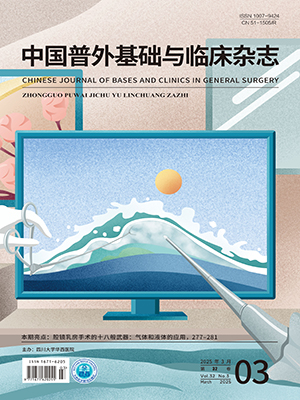Objective To investigate the best management in treating relapsed biliary calculi after endoscopic sphincterotomy (EST).
Methods The clinical data of 96 patients with relapsed biliary calculi after EST in our hospital from February 1999 to February 2009 were retrospectively analysed. The patients were grouped into two groups by the size of calculi under magnetic resonance cholangiopancreatography: surgical group (the size of calculi was bigger than 1.0 cm) in 79 cases and non-surgical group (the size of stone was smaller than 1.0 cm and the patients were performed EST again) in 17 cases. The relapsed biliary calculi rate between two groups were compared.
Results In the surgical group, the 79 patients (82.29%) were performed common bile duct exploration, transected common bile duct and choledochojejunostomy with Roux-en-Y anastomosis. In the non-surgical group, the 17 patients (17.17%) were performed EST again. The relapsed biliary calculi rate was 2.63% in the surgical group, 70.59% in the non-surgical group. There was marked difference in the relapsed biliary calculi rate between surgical group and non-surgical group (P lt;0.05).
Conclusion The operation treatment is the best way for relapsed biliary calculi after EST, and has good curative effect. The best manner of operation treatment is common bile duct exploration, transected common bile duct and choledochojejunostomy with Roux-en-Y anastomosis.
Citation: GE Jiayun ,LI Du,ZOU Hao,WANG Ling,LI Xiao,HUANG Songquan. Processing Strategy and Etiological Analysis of Relapsed Biliary Calculi after Endoscopic Sphincterotomy. CHINESE JOURNAL OF BASES AND CLINICS IN GENERAL SURGERY, 2010, 17(1): 77-80. doi: Copy
Copyright © the editorial department of CHINESE JOURNAL OF BASES AND CLINICS IN GENERAL SURGERY of West China Medical Publisher. All rights reserved




